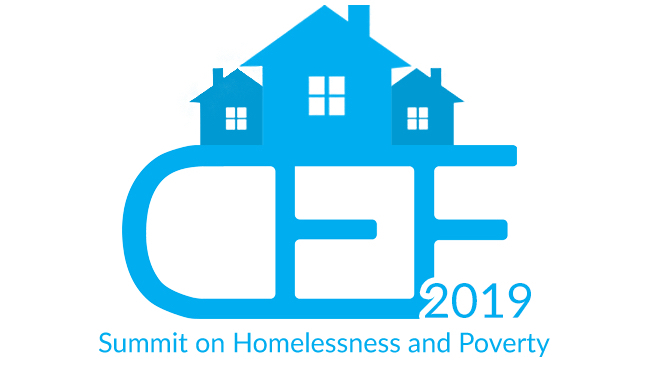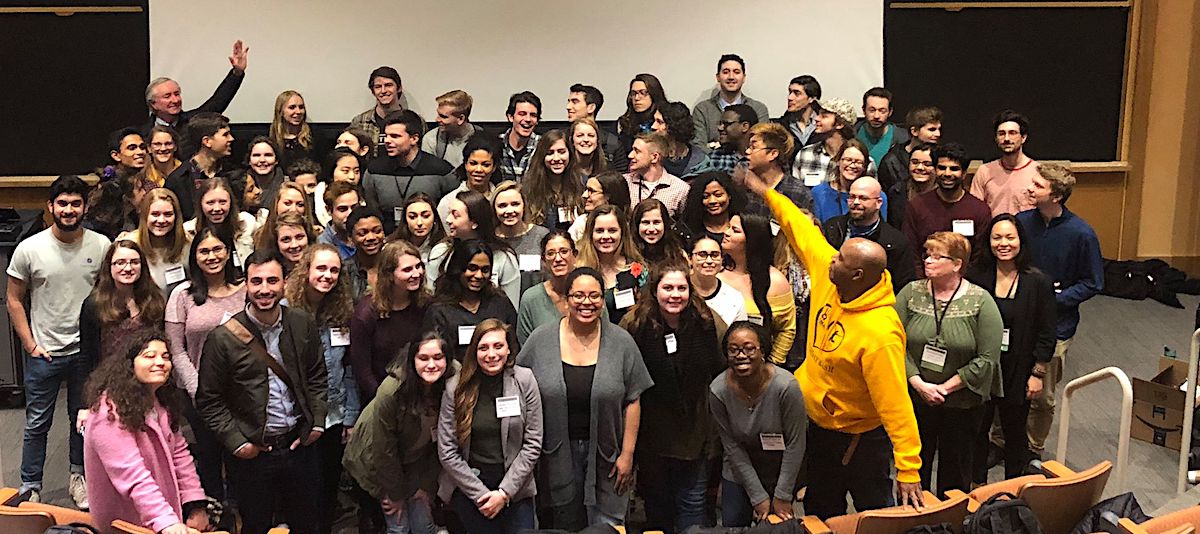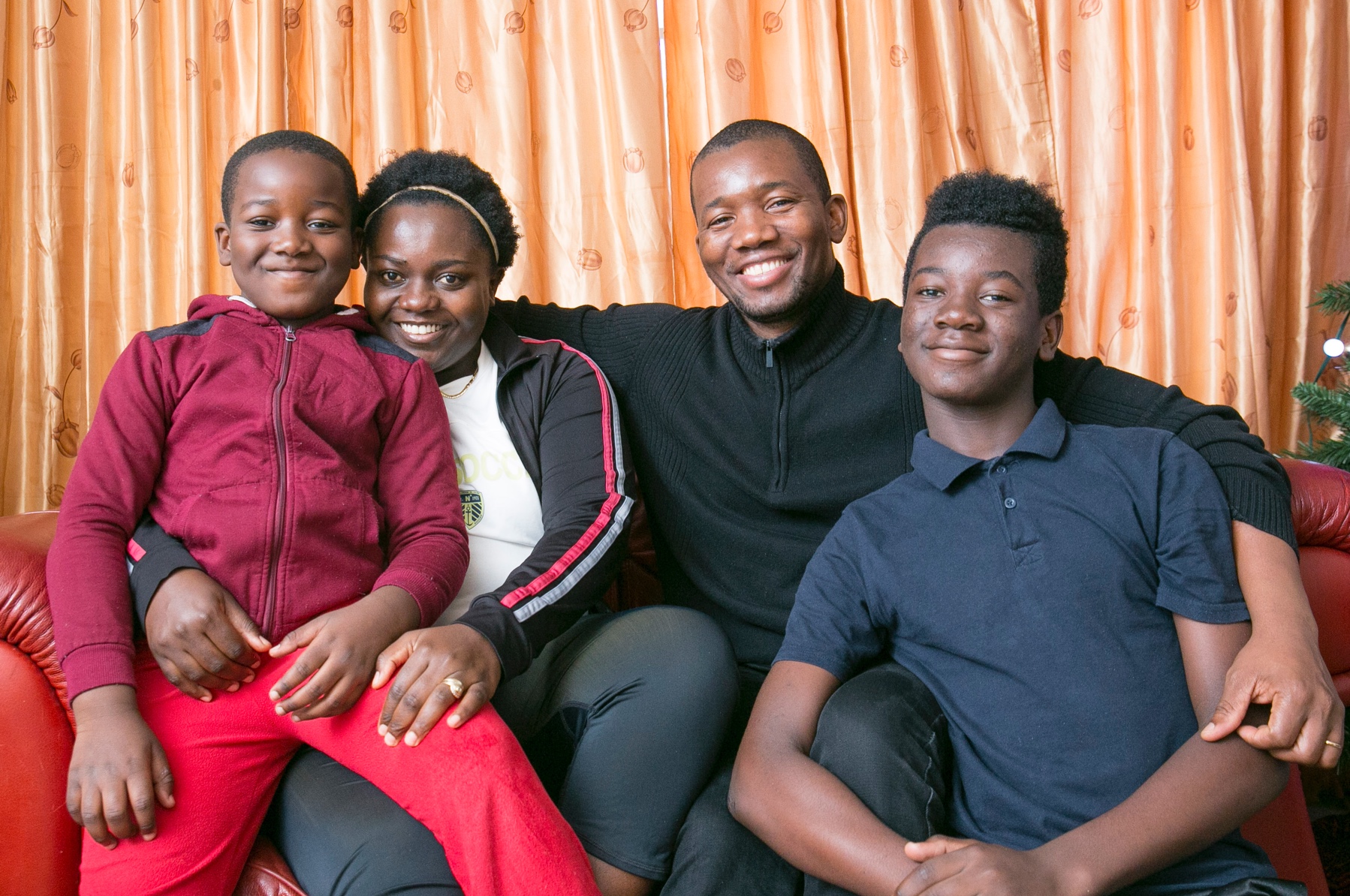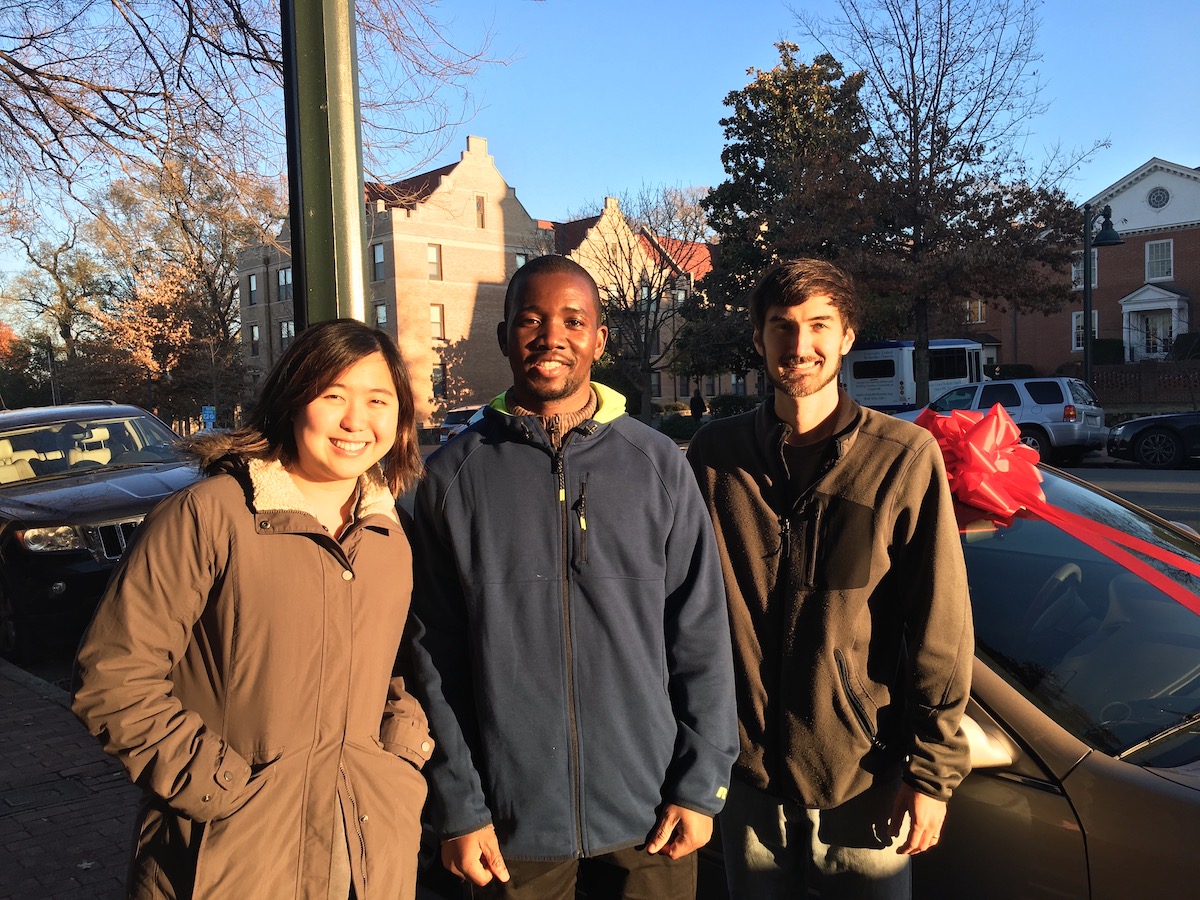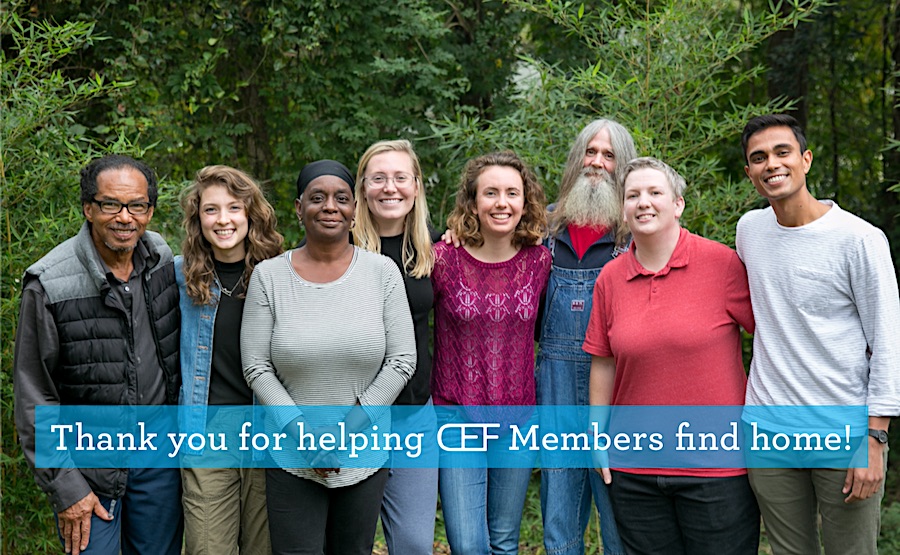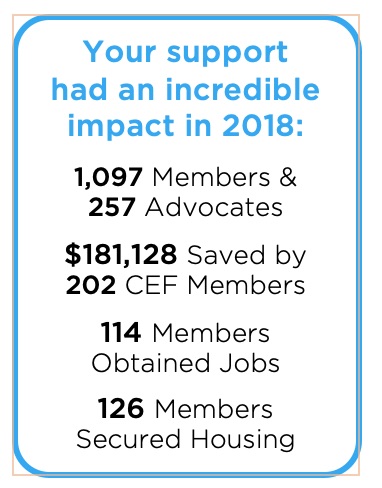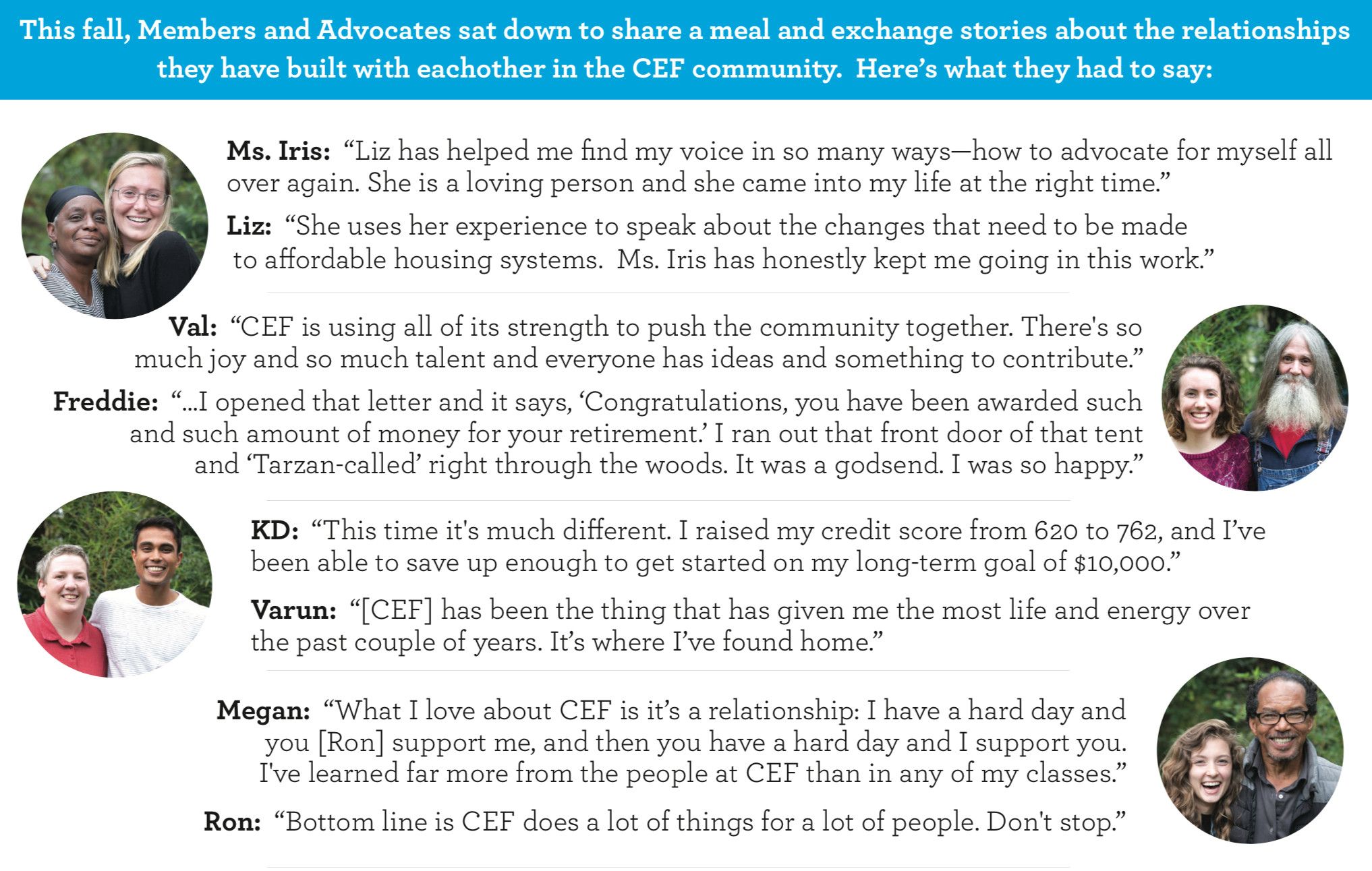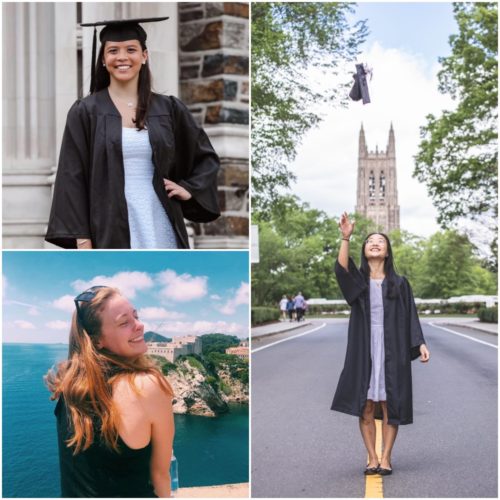
Graduating Senior Advocates Gianna, Hayes, and Grace
With the return of warm air and long evenings, we at CEF Durham are forced to say goodbye to our Senior Advocates as they graduate from Duke and head out into the world. These Advocates have contributed hundreds of hours, given an immeasurable quantity of energy, and formed CEF in more ways than we can put into words. As they left CEF, a few Senior Advocates offered up some parting words to share with the CEF community.
Grace Mok joined CEF as a summer intern through Duke Engage. Years later, Grace has completed over 120 CEF Member meetings, shaped Advocate training curriculum, and served as Special Projects Coordinator. Grace shared, “CEF has given me a different vision of how organizations can run and change for the better. Shared leadership and whole personhood are not ideas that all organizations strive for. I hope I can work for an organization as passionate and caring as CEF has been.” Further, Grace explained the ways in which CEF will stay with her as she moves away from Duke and Durham. “Some of the gifts are very concrete — a mug that a Member made himself that I put my silverware in now in my room. Some of the gifts are ephemeral — stories, advice, smiles. I am thinking about “coaching” as a lifestyle tool and I am thinking about community. I am so glad I have been able to build as many relationships as I have and had the opportunity to touch as many lives as I have, to learn with and from folks about so much.”
Gianna Giordano joined CEF during her first semester at Duke, and has since completed over 90 CEF Member meetings and served as Employment Services Coordinator on the student leadership team. Throughout her career at Duke and as an Advocate at CEF, Gianna applied what she was learning in the classroom to her work at CEF, and vice versa! “I have a huge appreciation for the way CEF recognizes that it is traumatic to constantly have to interact with a system that was designed to ensure that you lose. At Duke, I’ve spent a lot of time studying the child welfare system and other social policy issues, and I have observed that this trauma-informed mindset is missing from many discussions about human service delivery systems. When dealing with complex problems involving societal structures, many people look right past this. They see unfair policies and widespread injustice, but they do not recognize that the affected populations experience cumulative trauma that permeates every aspect of their daily lives. From my experiences at CEF, I’ve learned that there is not only a need for structural change but to be with people, support them, and help them recover,” Gianna explained. In her personal life, Gianna shared that, “CEF has encouraged me to value genuine friendships and relationship-driven service work, but it has also taught me to pay close attention to power structures that perpetuate injustice and push against them in creative ways. CEF Members have inspired me by their resilience, tenacity, and selflessness, and CEF staff and advocates have inspired me by their hard work, passion, and constant willingness to learn. The bonds and friendships I have formed with Members and other Advocates these past four years will motivate me to challenge structural injustices for the rest of my life.”
“CEF has been the longest-standing commitment I have had at Duke. I will never forget the Activities Fair on the East Campus Quad, where I saw Liz at a club booth and went to chat with her. I signed up for CEF that day and enrolled in the House Course for the fall semester of my freshman year,” shared graduating senior Hayes McManemin. Since then, Hayes has completed over 65 meetings with CEF Members, worked at CEF’s on-site office hours at the Families Moving Forward shelter, and served as Communications Coordinator on the student leadership team. Hayes shared, “In my opinion, CEF played an integral role in helping me decide what career trajectory I wanted to pursue. Now, I am sure I want to work in a non-profit setting where I can interact with those for whom I am advocating, and have a chance to build meaningful relationships with those same people. I have learned so, SO much about empathy and have gained so much perspective about the ridiculously privileged position I am in. This organization provided me a different way to engage with the Durham community and learn about this city outside of the Duke bubble. I love CEF very much and am going to be very sad at my last office hours!”
We are going to miss our seniors so much, and wish them all the best in taking what they have learned at CEF out into their new careers, cities, and communities. Wherever they go, we know they will make a positive impact in the lives of those around them, always remembering that all people are creative, resourceful, and whole.




